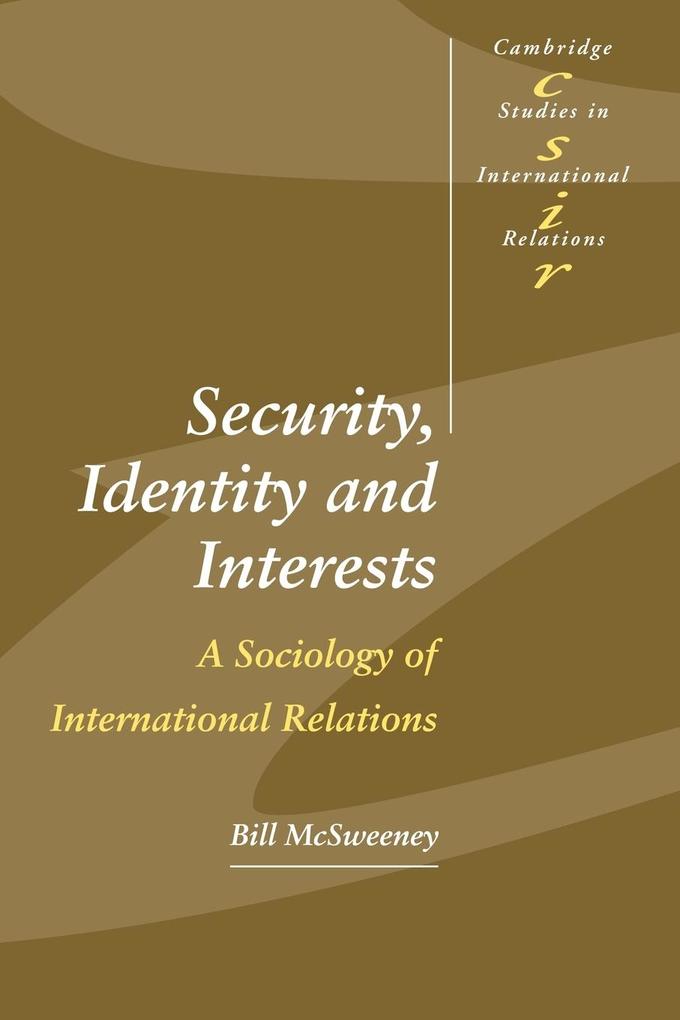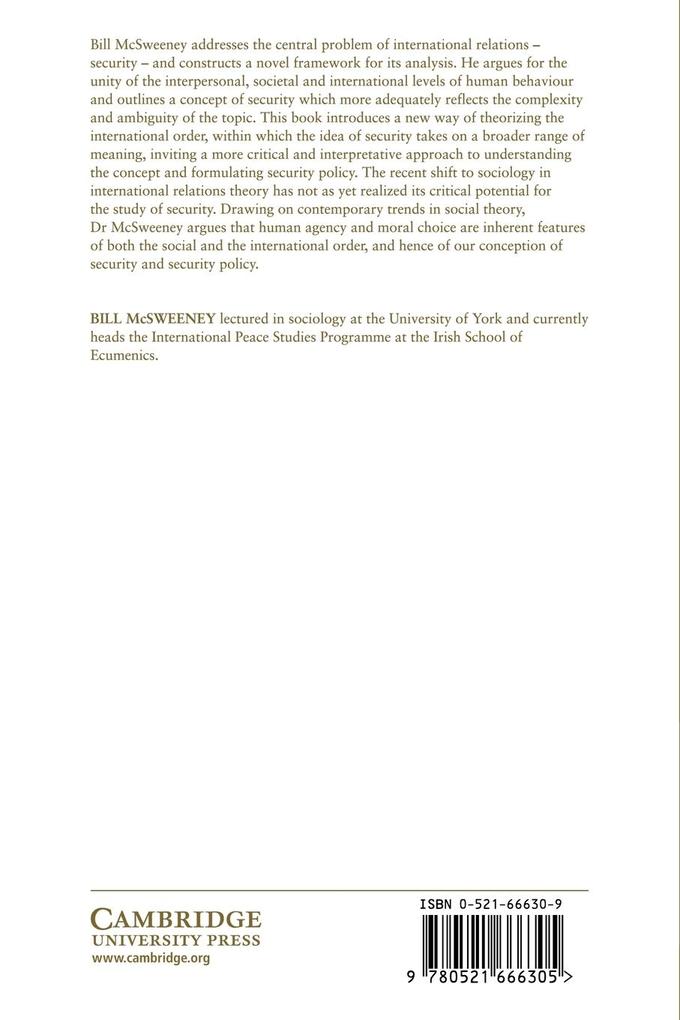
Zustellung: Sa, 19.07. - Mi, 23.07.
Versand in 5 Tagen
VersandkostenfreiBestellen & in Filiale abholen:
The study of security has been dominated for four decades by a scientific perspective that has been under attack since the end of the Cold War. In this book, Bill McSweeney discusses the inadequacy of this approach and criticizes the most recent attempts to surmount it. Drawing on contemporary trends in sociology, he develops a theory of the international order within which the idea of security takes on a broader range of meaning, inviting a more interpretive approach to understanding the concept and formulating security policy.
Inhaltsverzeichnis
Acknowledgements; Introduction; 1. The meaning of security; Part I. Objectivist Approaches to International Security: 2. Early stages of development; 3. Broadening the concept of security; 4. Identity versus the state; Part II. Theorizing Security: the Turn to Sociology: 5. A conceptual discussion; 6. The social constructionist approach; 7. The limits of identity theory; 8. Agency and structure in social theory; 9. Seeing a different world: a reflexive sociology of security; Part III. Practising Security: 10. Doing security by stealth; 11. Conclusion: security and moral choice; Bibliography; Index.
Produktdetails
Erscheinungsdatum
30. November 2006
Sprache
englisch
Seitenanzahl
256
Autor/Autorin
Bill McSweeney
Herausgegeben von
Steve Smith
Verlag/Hersteller
Produktart
kartoniert
Gewicht
421 g
Größe (L/B/H)
229/152/15 mm
ISBN
9780521666305
Entdecken Sie mehr
Bewertungen
0 Bewertungen
Es wurden noch keine Bewertungen abgegeben. Schreiben Sie die erste Bewertung zu "Security, Identity and Interests" und helfen Sie damit anderen bei der Kaufentscheidung.










